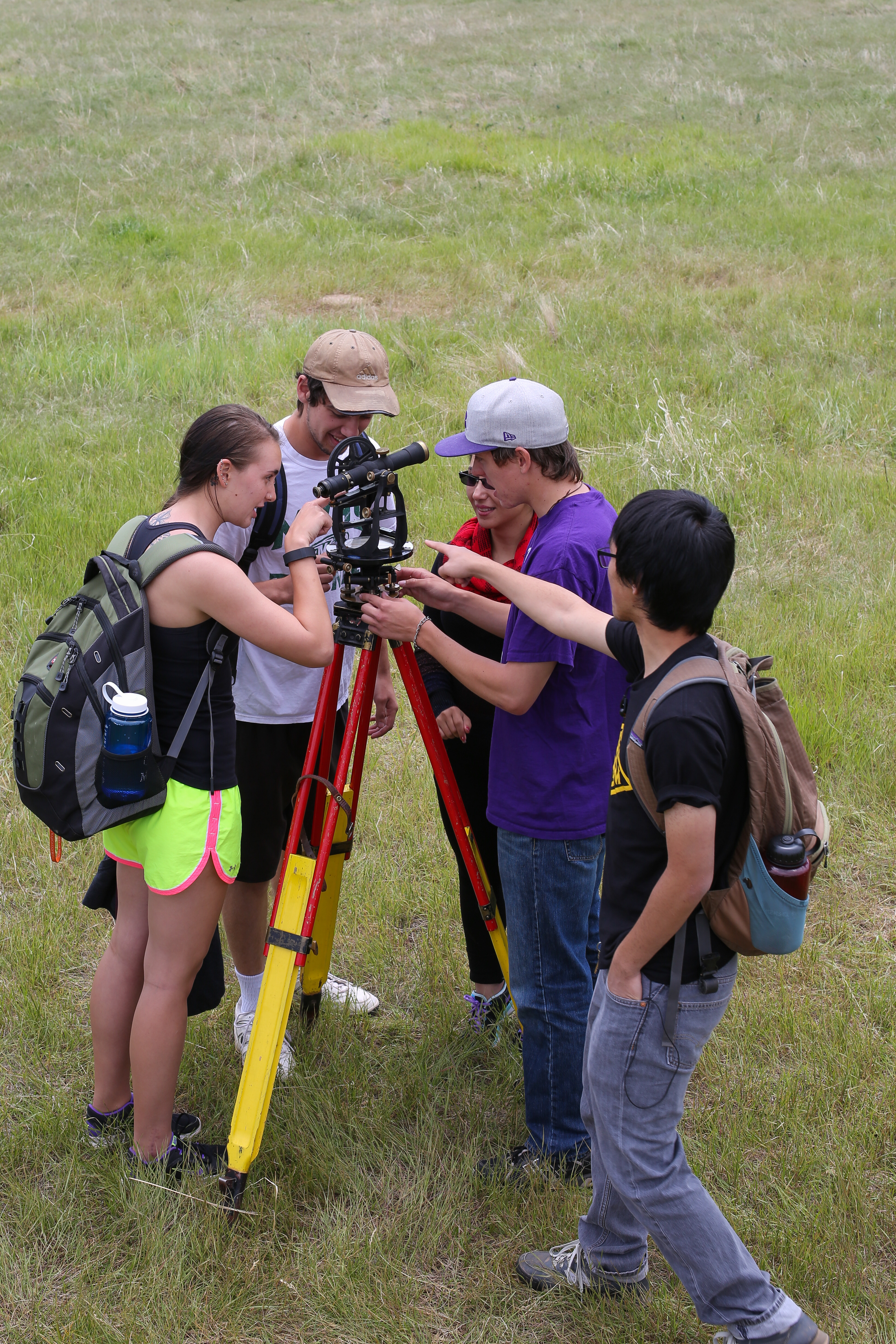Graduate Programs
Program Information
The Civil and Environmental Engineering Department offers Master of Science and Doctor of Philosophy degrees in Civil and Environmental Engineering (CEE) and Environmental Engineering Science (EES).
To achieve the Master of Science degree, students may elect the nonthesis option, based exclusively upon coursework and project activities, or the thesis option, which requires coursework and rigorous laboratory, modeling and/or field research conducted under the guidance of a faculty advisor and MS thesis committee, that is described in a final written thesis that is defended in an oral presentation.
The Doctor of Philosophy degree requires students to complete a combination of coursework and original research, under the guidance of a faculty advisor and doctoral committee, that culminates in a significant scholarly contribution (e.g., in the form of published journal articles) to a specialized field in Civil and Environmental Engineering or Environmental Engineering Science. The written dissertation must be defended in an public oral presentation before the advisor and dissertation committee. The PhD program may build upon one of the CEE or EES MS programs or a comparable MS program at another university. Full-time enrollment is expected and leads to the greatest success, although part-time enrollment may be allowed under special circumstances.
Civil and Environmental Engineering
The Civil and Environmental Engineering degree is designed for students who wish to earn a degree with a rigorous engineering curriculum. Students entering this degree program should have a BS in engineering, or will generally need to take about one semester of undergraduate engineering prerequisite courses. Within the CEE degree, students complete specified requirements in three different emphasis areas: Environmental and Water Engineering, Geotechnical Engineering and Structural Engineering.
Environmental Engineering Science
The Environmental Engineering Science degree does not require engineering credentials and has a flexible curriculum that enables students with a baccalaureate degree in biology, chemistry, math, physics, geology, engineering, and other technical fields, to tailor a coursework program that best fits their career goals.
The non-thesis MS degree in CEE and non-thesis and thesis MS degrees in EES are eligible programs in the Western Regional Graduate Program (WRGP/WICHE), which promotes the sharing of higher education resources among participating western states. An important benefit of this designation is that students who are residents from Alaska, Arizona, California, Hawaii, Idaho, Montana, Nevada, New Mexico, North Dakota, Oregon, South Dakota, Utah, Washington, and Wyoming, as well as Commonwealth of the Northern Mariana Islands, Federal States of Micronesia, Guam, and Republic of the Marshall Islands may be eligible for discounted-rate non-resident tuition.
More information on the WRGP program is available here.
More Information
Contact Kimberly Brock
Phone: 303-384-2616
Email: kbrock@mines.edu

Faculty Expertise and General Emphasis Areas
Civil and Environmental Engineering faculty have expertise in environmental engineering, environmental-engineering science, geotechnical engineering, hydrology and water-resources engineering, and structural engineering. These areas also serve as topic areas for coursework and for M.S. thesis or PhD dissertation research, and are the basis for degree requirements.
Environmental and Water Engineering
Environmental engineering is the application of environmental processes in engineered systems. CEE faculty have expertise in biosystems engineering, wastewater treatment, water-treatment, bioremediation, soil clean up, mining treatment processes and systems, remediation processes, biochemical reactions in soils, membrane processes, and energy recovery from fluids. Students who pursue this discipline complete the requirements of the Environmental and Water Engineering (EW) emphasis area, in the CEE degree, given below.
Environmental Engineering Science
Environmental Engineering science is the study of fundamental biological, chemical, and physical processes that relate to the field of environmental and water resources engineering. Students in this emphasis area usually have interests in environmental microbiology, aqueous chemistry, environmental organic chemistry, biogeochemistry, or fundamental processes associated with engineered water systems (see description for Water-resources engineering below). Students interested in this area complete the requirements for the EES degree given below.
Geotechnical Engineering
Geotechnical Engineering is concerned with the engineering properties and behavior of natural and engineered geomaterials (soils and rocks), as well as the design and construction of foundations, earth dams and levees, retaining walls, embankments, underground structures and tunnels. Almost all constructed projects require input from geotechnical engineers as most structures are built on, in or of geomaterials. Additionally, mitigation of the impact of natural hazards such as earthquakes and landslides, sustainable use of energy and resources, and reduction of the environmental impacts of human activities require geotechnical engineers who have in-depth understanding of how geomaterials respond to loads, and environmental changes. Students who pursue the geotechnical engineering discipline complete the requirements of the Geotechncial Engineering emphasis area in the CEE degree, given below.
Hydrology
Students interested in this area have two options. Students interested in natural-systems hydrology, ground-water resources, and contaminant-transport processes often choose to earn a degree in “Hydrology” in the interdisciplinary Hydrologic Science and Engineering (HSE) program (see HSE section of this graduate bulletin, and the web site hydrology.mines.edu. Students interested in engineered water systems, such as water infrastructure, water reclamation and reuse, ground-water remediation, urban hydrology, and fluid mechanics typically choose the CEE degree – Environmental and Water Engineering (EWE) Emphasis area, or the EES degree (for students who do not wish to complete an engineering curriculum), both described below.
Structural Engineering
Structural engineering is a multidisciplinary subject spanning the disciplines of civil engineering, aerospace engineering, mechanical engineering, and marine engineering. In all these disciplines, structural engineers use engineered materials and conduct analyses using general principles of structural mechanics, to design structures for civil systems. Designed systems may include bridges, dams, buildings, tunnels, sustainable infrastructure, highways, biomechanical apparatus, and numerous other structures and devices. Students who pursue this discipline complete the requirements of the Structural Engineering (SE) emphasis area.
Combined Degree Program
Mines undergraduate students have the opportunity to begin work on an MS degree in Civil and Environmental Engineering or Environmental Engineering Science while completing their bachelor’s degree at Mines. The Mines Combined Degree Program provides the vehicle for students to use undergraduate coursework as part of their graduate degree curriculum. For more information, please contact the CEE office.